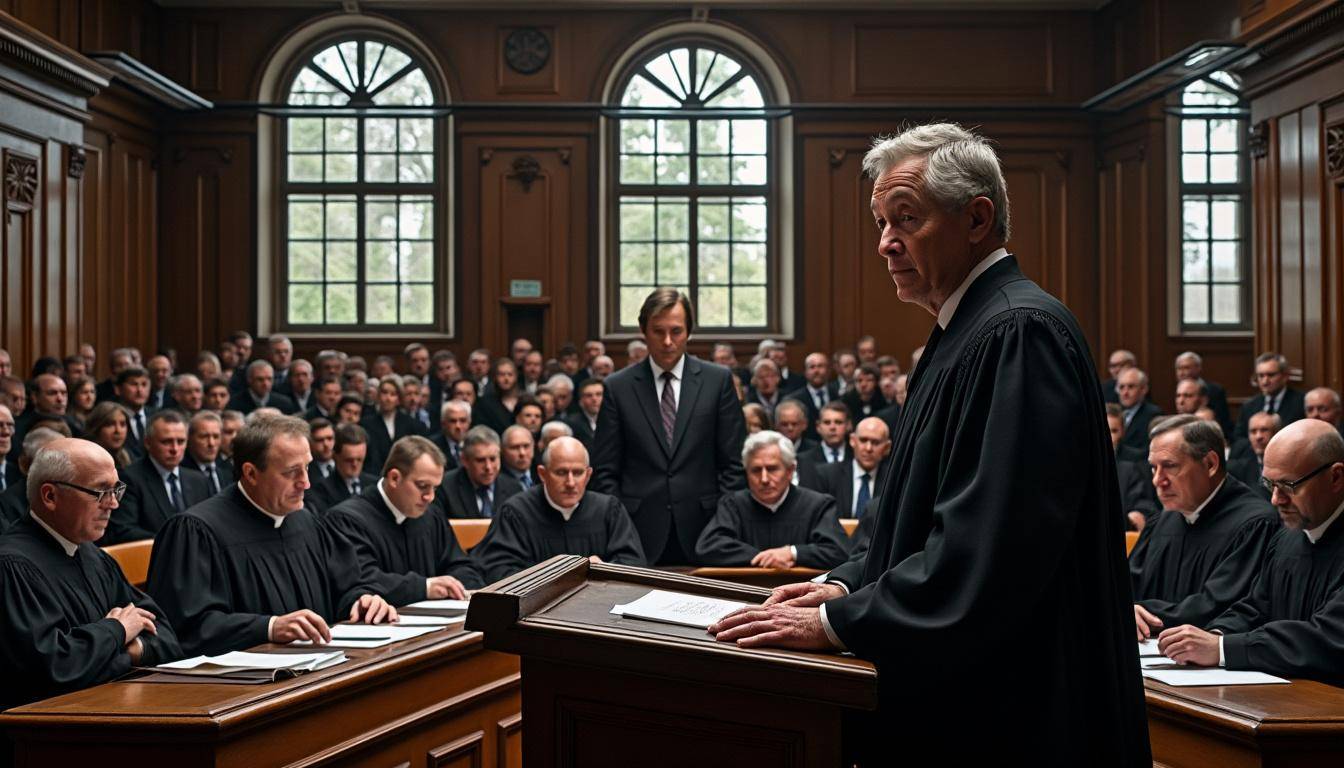The Dutch Court of Appeal has opened the door for survivor representatives to participate in a case arising from clergy abuse allegations, signaling a meaningful shift in how the Dutch Court of Appeal handles clergy abuse concerns within church contexts. This development underscores attention to victim advocacy, human rights concerns, and transparent accountability within civil litigation. As 2025 unfolds, the case highlights evolving standards for access to justice in complex civil proceedings against religious institutions and insurers.
- Survivor groups can join appellate proceedings to present perspectives on disclosure, materiality, and the impact on remedies.
- The decision foregrounds public policy considerations when long‑ago sexual abuse allegations intersect with insurance coverage and renewal practices.
- Courts balance protection of institutional interests with the rights of victims to participate and seek accountability.
Dutch Court of Appeal Permits Participation in Case Originating from Clergy Abuse Allegations
The appellate court granted intervention to the claimant representatives, allowing them to contribute to the appeal’s arguments. This intervention centers on how insurers assess risk in cases tied to sexual abuse allegations and how policy terms interact with state and church responsibilities. The court stressed that the abuser should not speak for the abused, and the intervention aims to ensure survivor voices inform the legal analysis in a way that respects victim advocacy and human rights principles within civil litigation.
- Intervenors must demonstrate a direct interest in the appeal’s issues and avoid expanding the scope beyond the core questions.
- The court considers whether voiding or altering policy coverage years after the events would undermine a viable remedy for victims.
- Judicial reasoning may address how insurance contracts should reflect ethical obligations of religious institutions.
Key legal principles shaping the Dutch Court of Appeal decision
The ruling engages central questions about nondisclosure, materiality, and the public policy implications of voiding a policy long after abuse incidents. It also clarifies the scope of admissible arguments by intervenors in a case touching on both church governance and insurance practices.
- Nondisclosure and materiality as grounds to challenge coverage in a historical context.
- Role of survivor advocacy groups in shaping appellate discourse on remedies and accountability.
- Public policy considerations regarding long‑running disputes over abuse coverage and survivor compensation.
The independent discussion emphasizes how human rights standards inform appellate practice and the potential for increased transparency in justice system proceedings.
Implications for victim advocacy, accountability, and the justice system
The decision aligns with evolving norms in civil litigation that prioritize survivor voices and robust checks on institutional responses to abuse. It signals a broader trend toward incorporating human rights considerations into practical courtroom strategies and policy debates surrounding clergy abuse.
- Enhanced access to appellate review for survivors and their representative plaintiffs.
- Encouragement for institutions to adopt transparent reporting and governance practices to reduce risk in future coverage negotiations.
- Clarification of the balance between insurer defenses and remedies available to victims under applicable law.
Practical takeaways for practitioners and the public
Practitioners should consider how to structure interventions, coordinate with victim advocacy groups, and navigate insurer arguments about policy voidance in abuse claims. The ruling also invites a closer look at how the justice system can uphold human rights in complex civil disputes involving religious institutions.
- Maintain clear representation for survivor groups to ensure credible advocacy and advocacy-friendly procedures.
- Prepare arguments that address both policy implications and concrete remedies for victims.
- Anticipate shifts in insurer strategy when cases hinge on long‑term coverage and nondisclosure issues.
What does this ruling mean for future legal proceedings in the Netherlands? It signals a more inclusive approach to allowing survivor voices to participate in appellate processes, particularly in cases touching on clergy abuse and insurer coverage questions.
How might this affect church accountability? By enabling survivor participation, courts may scrutinize governance and reporting practices more closely, strengthening the demand for accountability and just remedies.
What is the role of human rights standards in this context? The decision reflects international norms that protect victims’ rights, promote access to justice, and guard against policy choices that could deprive survivors of compensation.
